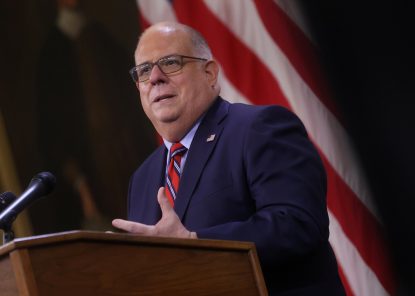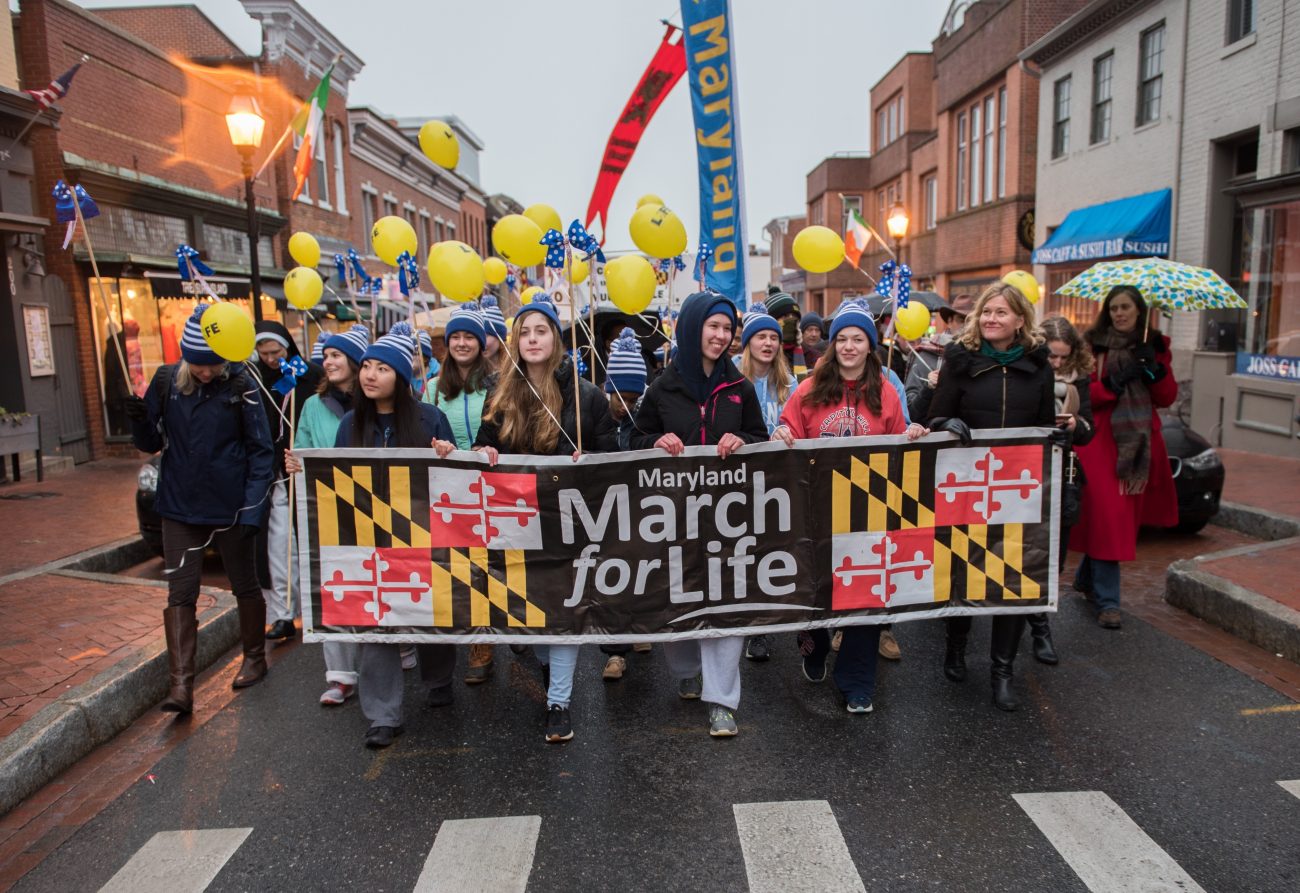Calling it “a sad day for women’s health and safety in Maryland,” the Maryland Catholic Conference strongly criticized the state’s General Assembly for overriding Gov. Larry Hogan’s veto of a bill that will now become law and greatly expand abortion access in the state.
On April 9, Maryland’s House of Delegates and Senate overrode Hogan’s veto of H.B. 937 a day earlier. The legislature was concluding its 2022 session April 11.
The state Catholic conference was “deeply disappointed” by the lawmakers’ vote, said Jenny Kraska, the conference’s executive director.
[hotblock]
“Many companies will now be compelled to pay for abortion through insurance, and it is now legal for nonphysicians to perform abortions,” she said in a statement. “We renew our own support for women and children and call for the state to support pregnant women and their children so together they may survive and thrive.”
The conference is the public policy arm of the Catholic Church in Maryland, representing the Archdiocese of Baltimore; the Archdiocese of Washington, which includes five Maryland counties surrounding the nation’s capital; and the Diocese of Wilmington, Delaware, which includes counties on Maryland’s Eastern Shore.
The Abortion Care Access Act, or H.B. 937, mandates the state provide $3.5 million in funding annually beginning in fiscal year 2024 for a newly established Abortion Care Clinical Training Program.
Maryland law had previously specified that abortions could only be provided by licensed physicians, but under H.B. 937, which becomes law July 1, the definition of qualified abortion providers will be expanded to include nurse practitioners, nurse-midwives, licensed midwives and physician assistants.
The Senate’s companion measure, S.B. 890, was rolled into the House bill in its final form.
The new abortion law also will require that “Medicaid must provide coverage of abortion care services without restrictions” in Maryland and, regarding insurance coverage, that “a carrier that provides labor and delivery coverage must cover abortion care services.”
It does allow religious organizations to obtain an exclusion for abortion coverage by their health care insurance plans.

Republican Gov. Larry Hogan of Maryland is seen in Annapolis July 22, 2020. (CNS photo/Jonathan Ernst, Reuters)
Hogan, a Catholic, said H.B. 937 “endangers the health and lives of women by allowing nonphysicians to perform abortions.”
“The bill risks lowering the high standard of reproductive health care services received by women in Maryland,” he said in an April 8 letter to House of Delegates Speaker Adrienne Jones explaining his veto. “These procedures are complex and can, and often do, result in significant medical complications that require the attention of a licensed physician.”
Licensed physicians have a level of education and training that other health care professionals do not have and “are uniquely qualified to perform these procedures and resolve any medical complications should they arise,” he said.
“The only impact that this bill would have on women’s reproductive rights would be to set back standards for women’s health care and safety,” Hogan said.
[hotblock2]
In February testimony opposing H.B. 937, the Maryland Catholic Conference said: “Given that abortion is ubiquitous in our state, Maryland women are not looking for abortion expansion but rather help with basic necessities they need.”
“Offering abortion without providing alternatives is reproductive coercion,” the conference testified. “This type of bill rejects the self-determination and bodily autonomy of women, especially low-income women, immigrants and women of color. Maryland women want support to be able to achieve their dreams and raise their children.
“It is not more abortion that Maryland needs, but a clear understanding of the diverse demographic in our state and support and resources for growing families.”
At a March 30 Prayer Vigil for Life and Lawmakers at St. Mary’s Church in Annapolis, Baltimore Archbishop William E. Lori said recent years offered reminders of the value of human life and the need to respect it.
“From the ravages of the pandemic to the innumerable threats to human dignity caused by racial injustice, xenophobia, poverty and more — our society has been challenged to value life, to preserve life, to refuse to let life — any life — succumb to illness, to injustice, to marginalization,” he said.
Archbishop Lori, one of five Catholic bishops serving Maryland who attended the vigil, said that rather than see the death of an unborn child as the solution to an unexpected pregnancy, “why not invest resources, instead, on the needs of the mother — the emotional, physical, material and spiritual care of her?”
He noted how the church supports and invests in crisis pregnancy centers for that reason. The state could likewise, he said, invest in prenatal and postnatal care, medical care, education and other help for women facing unplanned pregnancies who might feel helpless and alone and without any other choice.
***
Zimmermann is editor of the Catholic Standard, newspaper of the Archdiocese of Washington.
PREVIOUS: As Colorado expands abortion, Oklahoma lawmakers OK near-total ban
NEXT: Mass aboard cargo ship brings joy to crew longing for liturgy




Share this story